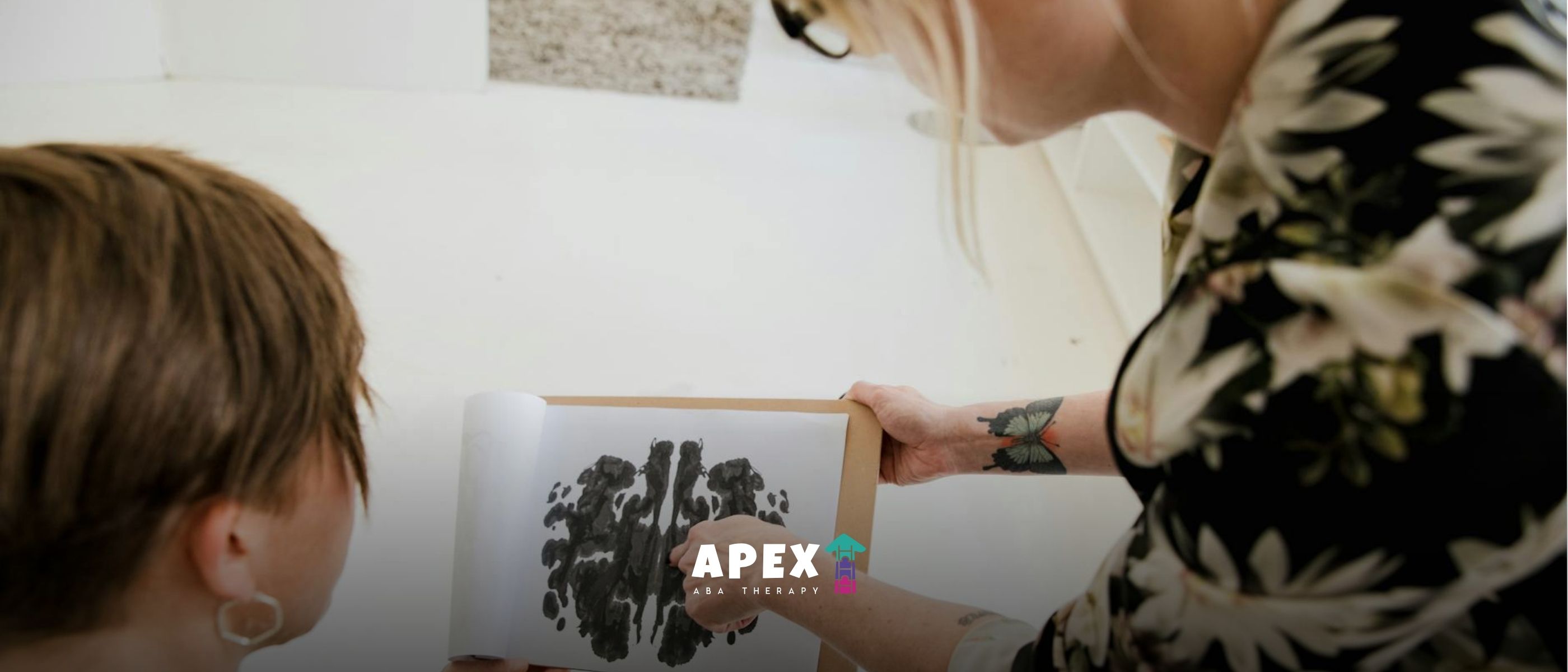ABA Therapy and Sleep Issues
Explore how ABA therapy and sleep issues affect children with autism and discover effective strategies to help.

ABA Therapy and Sleep Issues
Understanding Sleep Problems in Autism

Prevalence of Sleep Issues
Sleep disturbances are highly prevalent among children with Autism Spectrum Disorder (ASD). A study indicated that 53% of children aged 2 to 5 years with ASD reported sleep problems, with a staggering 86% experiencing these issues daily [1]. These sleep issues can manifest in various forms, including difficulty falling asleep, frequent waking during the night, and inability to stay asleep.
The prevalence of these problems is concerning for both the child and their family. Poor sleep can lead to significant challenges in daily functioning, affecting the child’s behavior, concentration, and overall well-being. The table below summarizes key statistics related to sleep issues in children with autism.
StatisticPercentageChildren aged 2 to 5 years with sleep problems53%Children experiencing sleep issues daily86%
Impact on Children and Caregivers
The impact of sleep problems extends beyond the child with ASD. Families often experience increased stress and fatigue due to the ongoing challenge of managing sleep disturbances. These sleep issues can exacerbate core symptoms of ASD, including reduced social communication skills and heightened restricted and repetitive behaviors. Moreover, poor sleep quality can contribute to comorbid daytime problem behaviors, such as aggression and self-injury in children [2].
Understanding the substantial toll that sleep problems take on both the child and the caregivers is essential for effective treatment planning. Caregivers should be aware of the importance of sleep and how it affects the well-being of their child, as well as the family's overall quality of life. ABA therapy can provide valuable strategies for addressing sleep issues, making it a crucial topic for parents and caregivers navigating this journey [3].
For more information on how ABA therapy can aid in managing sleep issues, consider exploring the various techniques used in ABA Therapy for Sleep Disorders.
ABA Therapy for Sleep Disorders
Effectiveness of ABA Therapy
Applied Behavior Analysis (ABA) therapy is recognized for its effectiveness in managing sleep disorders among individuals with Autism Spectrum Disorder (ASD). Approximately 53% of children aged 2-5 with ASD experience some form of sleep problem. ABA techniques have been proven to significantly reduce these disturbances, improving the child's sleep quality and overall quality of life. This therapy addresses various sleep disturbances, such as prolonged sleep onset latency, frequent awakenings during the night, short sleep duration, and early rising times.
Sleep IssueABA Therapy BenefitProlonged Sleep OnsetImprovement in the time taken to fall asleepFrequent Night AwakeningsReduction in the number of awakeningsShort Sleep DurationIncrease in overall sleep timeEarly RisingDelay in wake-up time
Lack of sleep can negatively affect academic achievements, social interactions, and behavior, leading to increased stress levels for caregivers. Therefore, implementing ABA can alleviate these issues and provide a more restful night for both children and their caregivers.
Implementing Behavioral Techniques
Behavioral interventions and therapeutic strategies based on ABA methods are essential for managing sleep disorders in children with autism. These techniques can be tailored to each child's unique sleep challenges and include methods such as:
Here's a brief overview of the primary techniques used in ABA therapy for sleep management:
TechniqueDescriptionGradual ExtinctionGradually reducing parental involvement in the sleep process.Positive ReinforcementRewarding children for sleeping through the night or following bedtime routines.Environmental ModificationsAdjusting the sleep environment to reduce noise, control lighting, and increase comfort.
These strategies, combined with structured approaches, aim to improve sleep quality and create a more manageable bedtime routine. For further insights on ABA therapy's flexibility, consider exploring the differences in aba therapy vs. other autism treatments.
Behavioral Techniques in ABA Therapy
Implementing effective behavioral techniques is essential in addressing sleep issues in children with Autism Spectrum Disorder (ASD). Two popular strategies used in Applied Behavior Analysis (ABA) therapy are positive reinforcement systems and gradual extinction protocols.
Positive Reinforcement Systems
Positive reinforcement is a technique that encourages desired behaviors by providing rewards. In the context of sleep issues, this approach establishes a reward system for children who successfully stay in bed and sleep through the night. By celebrating small successes, caregivers can motivate children to develop better sleep habits [1].
BehaviorPotential RewardStaying in bed for 15 minutesSticker or tokenSleeping through the nightExtra story at bedtime or a small toyWaking up calmlyChoice of breakfast or special outing
This table illustrates a simple framework to implement positive reinforcement. It is important that rewards are meaningful to the child, as this increases motivation and encourages adherence to the sleep routine.
Gradual Extinction Protocols
Gradual extinction protocols teach children to self-soothe and fall asleep independently. This method involves slowly reducing the amount of assistance provided during bedtime. Over time, the child learns to manage their emotions and establish sleep routines without external help [1].
The process may include the following steps:
By using gradual extinction protocols, parents can help children gain confidence in their ability to fall asleep independently, reducing anxiety around bedtime and ultimately improving sleep quality.
These two techniques—positive reinforcement systems and gradual extinction protocols—form the core of behavioral strategies within ABA therapy to address sleep issues. For more insights on ABA therapy and its integration with other disciplines, parents can refer to related topics like ABA therapy and occupational therapy integration and success rates of aba therapy.
Collaborative Approach for Sleep Management
A comprehensive strategy for managing sleep issues in individuals with autism often requires a collaborative effort involving various professionals. This integration ensures that each aspect of the individual's health and well-being is addressed.
Involvement of Medical Professionals
Consultation with medical professionals is essential for effectively managing sleep disturbances in individuals with autism. Parents and caregivers are encouraged to connect with pediatricians, sleep specialists, and behavioral therapists. These experts can offer valuable insights and tailored strategies for improving sleep hygiene. In addition to medication, comprehensive behavioral interventions can further enhance the effectiveness of ABA therapy and sleep issues.
Professional RoleContributionPediatriciansAssess general health and rule out underlying medical conditions.Sleep SpecialistsProvide targeted strategies for addressing sleep difficulties specific to autism.Behavioral TherapistsImplement behavioral techniques and support aba therapy and family involvement.
Supporting Strategies
In addition to professional guidance, various supporting strategies can be helpful in fostering better sleep patterns. Behavioral interventions for treating sleep problems in children with Autism Spectrum Disorder (ASD) include:
Implementing a bedtime pass can also be a beneficial intervention for children who resist going to sleep. This allows them to briefly leave the bedroom for specified purposes, helping to reduce anxiety around bedtime. Should problems with sleep behavior persist, an escape extinction procedure may be utilized [5].
Considering these elements alongside guidance from medical professionals can significantly improve the sleep experiences of children with autism, ultimately benefiting both the individuals and their caregivers. For additional information on the advantages of ABA therapy, refer to our article on aba therapy vs. other autism treatments.
Environmental Factors and Sleep
Creating an optimal sleeping environment is essential for individuals with Autism Spectrum Disorder (ASD). Various environmental factors, such as noise, lighting, and temperature, significantly impact their ability to relax and fall asleep easily [1].
Creating a Conducive Environment
To foster a restful sleeping environment, several adjustments can be made:
Environmental FactorRecommendationsNoiseUse white noise machines or soft music to mask disruptive sounds.LightingEmploy blackout curtains to minimize external light disturbances. Consider using dimmable lights or soft lighting during bedtime.TemperatureMaintain a comfortable room temperature, typically between 68°F and 72°F, to help promote sleep.ClutterKeep the sleeping area organized and free from distractions to create a calming atmosphere.
By addressing these factors, caregivers can significantly enhance the quality of sleep for individuals with ASD.
Consistent Bedtime Routines
Establishing a consistent bedtime routine is another critical strategy for promoting healthy sleep patterns. Routines help prepare the individual for sleep and signal the body that it is time to wind down. A typical bedtime routine may include:
Creating a predictable nighttime routine can minimize anxiety and sensory overload (Yellow Bus ABA), making it easier for children to transition into sleep. Moreover, behavioral interventions in ABA therapy can complement these strategies, such as improving sleep hygiene and gradually establishing self-soothing techniques.
Medication Options for Sleep Issues
When addressing sleep issues in individuals with autism, medication options may sometimes be considered as part of a comprehensive management plan. Two common options include melatonin supplements and prescribed sleep aids.
Melatonin Supplements
Melatonin is a hormone naturally produced by the body to regulate sleep-wake cycles. For many children with Autism Spectrum Disorder (ASD), melatonin supplements are often recommended to help promote better sleep. Research shows that around 86% of children with sleep problems experience these issues daily [1].
Melatonin supplements can help reduce the time it takes for a child to fall asleep and improve sleep duration. They are widely regarded as a safe option when used appropriately. Below is a table summarizing typical dosages:
Age GroupTypical Melatonin Dosage2-5 years0.5 - 3 mg6-12 years1 - 5 mg13 years and older1 - 10 mg
It is essential for parents and caregivers to consult with a healthcare professional to determine the proper dosage and timing for melatonin supplementation.
Prescribed Sleep Aids
In addition to melatonin, other prescribed sleep aids may be necessary for some individuals who do not respond to melatonin alone. Medication options can include:
Parents and caregivers should work closely with medical professionals to evaluate the appropriateness of prescribed sleep aids and monitor any potential side effects.
Integrating medication options with ABA therapy and sleep issues can lead to more effective management of sleep disturbances. It is important to consider a holistic approach that also includes behavioral techniques and collaborative strategies involving caregivers and specialists to ensure the best outcomes for children with ASD.
References
[2]:
[3]:
[4]:
[5]:
Frequently Asked Questions
.jpg)
Autism And Bed Wetting: Unlocking Solutions
Explore the connection between autism and bedwetting and find practical insights and solutions for parents and caregivers. Discover how understanding and support can make a difference in managing this common challenge for children and individuals on the autism spectrum.

Proven Examples of Smart Goals for Students with Autism
Unlock the potential of students with autism through proven examples of SMART goals. Set them up for success!
.jpg)
What is the Sensory Processing Disorder ICD-10 Code?
If you or someone you know has been diagnosed with Sensory Processing Disorder (SPD), you may have heard of the ICD-10 code. In this article, we'll explain what the SPD ICD-10 code is, what it means, and why it's important.

Understanding Vestibular Stimming in Autism
Demystifying vestibular stimming in autism: Understand the impact, strategies, and support for individuals. Uncover the power of self-regulation through stimming.

Do Amish Kids Get Autism?
Explore the prevalence of autism in Amish children and uncover the factors that may contribute to this phenomenon. Delve into the unique characteristics of Amish communities and their impact on autism rates.

Breaking Barriers: Free Sensory Toys for Autism That Make a Difference
Discover life-changing free sensory toys for autism! Unlock the power of sensory play for children with autism.

Famous People Thriving with Autism or Aspergers Syndrome
Discover the extraordinary journeys of famous people thriving with autism and Asperger's syndrome. Unveil the inspiring stories of icons who break stereotypes.

IEP Goals for Autism: Ultimate Guide
Unlock the potential: Constructing meaningful IEP goals for autism to support your child's growth and development. Discover strategies and examples!

Young Celebrities with Autism
Discover inspiring young celebrities with autism and their journeys in entertainment and advocacy.
.jpg)
Autism Hand Posturing: Causes, Types, and Management
Autism hand posturing refers to repetitive and often purposeless movements or postures of the hands and fingers seen in individuals with autism. These movements range from simple hand flapping to more complex finger twisting and tapping.

Distinguishing ADHD vs Autism Stimming
ADHD stimming vs autism stimming: Discover the motivations and characteristics behind these behaviors in individuals.

Addressing Rigid Thinking in Autism
Unlocking flexibility in autism! Discover strategies, therapy, and tools to address rigid thinking for a brighter future.

DSM 6 Release Date Revealed
Unlock the future with DSM-6! Discover the release date and anticipated changes in the mental health landscape.

Why Do Autistic People Rock?
Uncover insights with empathy, exploring the diverse ways rocking serves as a coping mechanism and sensory regulation for individuals on the autism spectrum. Join us in celebrating the beauty of neurodiversity, fostering understanding and appreciation for this distinctive aspect of autistic experience.

Signs Your Toddler Is Not Autistic
Discover reassuring signs that your toddler may not be autistic in this human-centered guide. Explore the joy of your child's unique developmental journey, celebrating their social engagement and communication skills.
.jpg)
Facial Features & Physical Characteristics Of Autism
Some researchers believe that these physical characteristics are related to the underlying neurological differences in individuals with autism.

The Three Main Causes of Autism: Exploring Genetics, Environment, and Brain Differences
Autism is influenced by genetics, environmental factors, and brain differences. Learn how these three causes contribute to the development of the condition.

What are the Common Behaviors of Autism?
Autism behaviors can vary widely. Learn about the most common traits, from social difficulties to sensory sensitivities, and how ABA therapy can support progress.

What Age is Too Late for ABA Therapy?
It’s never too late to start ABA therapy. Discover how children, teens, and adults can still make meaningful progress with personalized ABA support.

Is In-Home ABA the Right Fit for Your Child? Here’s What You Need to Know
In-home ABA therapy offers a tailored approach to support your child’s development. Learn how it can improve key skills like communication, social interaction, and more.

How Families Can Make ABA Therapy a Positive and Successful Experience
Learn how families can ensure ABA therapy is a positive, successful experience. Discover tips for involvement, consistency, and support to make ABA effective.

Can a Child Have Autism and Still Talk Normally?
Can a Child Have Autism and Still Talk Normally?

What Are the Red Flags for Autism in a 2-Year-Old?
Autism Red Flags in 2-Year-Old Children | Apex ABA

Is Autism a Lifelong Condition?
Is Autism a Lifelong Condition? Understanding The Journey

Best Age to Start ABA Therapy & What Parents Should Know
Best Age to Begin ABA Therapy for Children | Apex ABA

What’s the Difference Between High-Functioning Autism and Asperger’s?
Difference Between High-Functioning Autism and Asperger’s

ABA Therapy Enhancing Social Skills: A Key to Improved Communication and Interaction for Children with Autism
How ABA Therapy Helps Children Build Social Skills

Misconceptions About ABA Therapy: Clearing Up the Myths
Common Misconceptions About ABA Therapy | Apex ABA

What Does It Mean to Be “On the Spectrum”?
What Does It Mean to Be on the Autism Spectrum? | Apex ABA

Understanding the Power of Functional Behavior Assessment ABA
Effective ABA Techniques for Behavioral Intervention

Discover How ABA Helps ADHD in Your Child’s Life
How ABA Therapy Helps Children with ADHD | Apex ABA

Life-Changing ABA Therapy Case Studies You Need to Know
Real Success Stories from ABA Therapy Journeys | Apex ABA

Can Children “Outgrow” Autism?
Can Children Outgrow Autism? Understanding the Facts

Is Autism a Mental Illness or a Developmental Disorder?
Mental Illness or Developmental Disorder Explained

Is Autism More Common in Boys Than Girls?
Autism in Boys vs Girls: What the Research Reveals

What is the Difference Between Autism and Sensory Processing Disorder?
Autism vs Sensory Processing Disorder Differences | Apex ABA

What's the Difference Between Autism and Speech Delay?
Autism vs Speech Delay & Key Differences Explained | Apex

ABA Therapy in North Carolina: A Complete Guide for Families
Learn everything about ABA therapy in North Carolina, including services, costs, insurance coverage, and how to choose the best ABA provider in North Carolina.

ABA Therapy vs Preschool: Making the Right Choice Explained
Learn the key differences between ABA therapy and preschool to help you choose the best option for supporting your child’s early learning and development.

Which Personality Type Is Most Likely to Be Autistic?
Which Personality Type Is Most Likely to Be Autistic? | Apex ABA

Why Consistency Matters: What Happens If ABA Therapy Ends Prematurely
What Happens If ABA Therapy Is Stopped Too Early? | Apex ABA

How Can You Gain an Autistic Person’s Attention? Tips for Meaningful Connection
How Can You Gain an Autistic Person’s Attention?

Sensory Sensitivity and Sixth Sense: What Autism Research Shows
Do Autistic People Have Sixth Sense? | Apex ABA

What Happens If Autism Is Left Untreated?
Can Autism Get Worse If Untreated? | Apex ABA

What Not To Do With An Autistic Child: Avoid These 10 Mistakes
What Not To Do With An Autistic Child? | Apex ABA

Coping with Regressive Autism: Tips for Parents
What is Regressive Autism? | Apex ABA

Do Autistic Kids Live with Parents Forever? Here’s the Reality
Do autistic kids live with parents forever? Discover the facts about independence and living arrangements in autism with expert-backed insights.

Red Flags in ABA Therapy: What Parents Must Watch For
What are the red flags in ABA therapy? Learn to identify warning signs for safe, effective autism treatment in this blog.

Can You Go from Level 3 Autism to Level 1? Is It Possible?
Can you go from level 3 autism to level 1? Learn about progress, therapy, and support options with expert help from Apex ABA.

Autism vs Introversion: How to Tell the Difference
Is it autism or just introversion? Learn the key differences and signs with expert insights from Apex ABA.

ABA for Managing Transitions: Tips to Ease Change for Kids
Learn how ABA for managing transitions helps children with autism handle change smoothly.

Understanding the 7 Dimensions of ABA for Better Outcomes
Discover the 7 Dimensions of ABA and how they can lead to better outcomes.

5 Unique Autistic Love Languages You Should Know About
Discover the 5 unique autistic love languages that can enhance your relationships.

Transforming Futures: Improving Lives of Kids with Autism
Discover how innovative strategies are focused on improving lives of kids with autism.

ABA Therapy Techniques for Addressing Repetitive Behaviors in Autism
Harnessing ABA Strategies to Tackle Repetitive Behaviors in Autism

The Role of ABA Therapy in Enhancing Communication Skills
Transforming Communication for Children with Autism Through ABA Therapy

How ABA Therapy Supports Effective Communication in Nonverbal Children
Unlocking Speech Through ABA: Transformative Paths for Nonverbal Children

How to Help Your Child Transfer Skills Learned in ABA Therapy to Real Life
Unlocking Real-World Success for Children in ABA Therapy

How ABA Therapy Helps Children Develop Better Organizational Skills
Empowering Children with ABA Therapy for Enhanced Organizational Skills

The Importance of Creating a Structured Routine in ABA Therapy
How Structured Routines Transform ABA Therapy for Autism

The Role of ABA Therapy in Developing Conflict Resolution Skills
How ABA Therapy Transforms Conflict Resolution Competence

The Importance of Generalization in ABA Therapy for Autism
Unraveling the Role of Generalization in Enhancing ABA Therapy Outcomes

Why ABA Therapy is Crucial for Parents of Children with Autism
The Transformative Impact of ABA Therapy on Families with Autistic Children

How to Involve Parents in the ABA Therapy Process
Maximize Parent Engagement in ABA Therapy for Better Outcomes

What are the Core Principles of ABA Therapy?
Exploring the Cornerstones of Applied Behavior Analysis

Why Communication is Key in ABA Therapy for Autism
The Crucial Role of Communication in ABA Therapy for Autism

Why ABA Therapy Works for Children with Autism Regardless of Severity
Effective ABA Interventions for All Levels of Autism

Why It’s Important to Maintain a Balanced Approach to ABA Therapy
Balancing Effectiveness and Ethics in ABA Therapy

The Role of ABA Therapy in Developing Adaptive Behavior Skills
Exploring How ABA Therapy Transforms Lives

The Benefits of Combining ABA Therapy with Speech Therapy
Maximizing Development with Integrated Therapy Approaches

What to Expect During an ABA Therapy Session
Demystifying ABA Therapy Sessions: A Comprehensive Overview

How ABA Therapy Enhances Cognitive Functioning in Children with Autism
Exploring the Influence of Applied Behavior Analysis on Autism Cognition

How ABA Therapy Helps Children with Autism with Transitions Between Activities
Easing Transitions for Children with Autism: The Role of ABA Therapy

How to Foster Cooperation Between Parents and Therapists in ABA Therapy
Building Effective Partnerships in ABA Therapy

The Role of Positive Reinforcement in ABA Therapy
Exploring the Impact of Positive Reinforcement in Modern ABA Therapy

Why ABA Therapy is Effective for Children of All Ages
Understanding the Reach and Impact of ABA Therapy Across Age Groups

How to Support Your Child’s Emotional Growth with ABA Therapy
Harnessing ABA Therapy for Enhancing Emotional Development in Children with Autism

The Role of ABA Therapy in Enhancing Peer Relationships for Children with Autism
Harnessing ABA Therapy to Boost Social Connections Among Autistic Children

How to Overcome Common Challenges in ABA Therapy
Navigating Hurdles in ABA Therapy: Strategies and Solutions

How to Manage Behavioral Expectations with ABA Therapy
Understanding Applied Behavior Analysis in Behavioral Management

How ABA Therapy Promotes Emotional Regulation in Children with Autism
Unlocking Emotional Balance: ABA Therapy's Role in Autism

How ABA Therapy Improves Social Skills in Children with Autism
Harnessing ABA Therapy to Enhance Social Competency in Autistic Children

The Role of ABA Therapy in Classroom Success for Children with Autism
Harnessing ABA for Academic and Social Growth in Autism

The Importance of Evaluating and Revising ABA Therapy Goals Regularly
Regular Evaluations: The Cornerstone of ABA Therapy Success

How to Choose the Right ABA Therapy Program for Your Child
Finding the Perfect ABA Therapy Fit for Your Child

The Role of Behavior Analysts in Implementing ABA Therapy
Understanding the Vital Contributions of Behavior Analysts in ABA Therapy

The Role of RBTs (Registered Behavior Technicians) in ABA Therapy
A Closer Look at the Essential Work of RBTs in ABA Therapy

What Makes ABA Therapy Effective for Different Learning Styles?
Unraveling the Flexibility and Effectiveness of ABA Therapy

Understanding the Importance of Data Collection in ABA Therapy
The Role of Data in Shaping Effective ABA Therapy

How ABA Therapy Helps with Toilet Training in Children with Autism
Unlocking Independence: ABA's Role in Autism Toilet Training

The Importance of Encouraging Natural Play in ABA Therapy
Revolutionizing ABA Therapy with Natural Play

How to Make the Most of ABA Therapy at Home
Enhancing ABA Therapy Practices Within Your Home

How to Make ABA Therapy Fun and Engaging for Children with Autism
Transforming ABA Therapy into a Fun Learning Journey

The Role of ABA Therapy in Addressing Verbal and Nonverbal Communication in Autism
Enhancing Communication Skills in Autism Through ABA Therapy

Understanding the Role of Family in ABA Therapy for Autism
The Crucial Impact of Family Engagement in Autism Therapy

How to Handle Setbacks and Challenges in ABA Therapy
Navigating Difficulties and Setbacks in ABA Therapy for Children

How ABA Therapy Can Help Children Build Stronger Relationships with Peers
Unpacking the Influence of ABA Therapy on Peer Relationships in Children

Understanding the Concept of Shaping in ABA Therapy
Demystifying Shaping Techniques in Applied Behavior Analysis

How ABA Therapy Enhances Independent Living Skills in Autism
Unlocking Independence: The Role of ABA Therapy in Autism
.jpg)
90+ Reading Statistics, Facts and Demographics
In this article, we will dive into 60 reading statistics that shed light on the importance of reading and its impact on different aspects of life.



